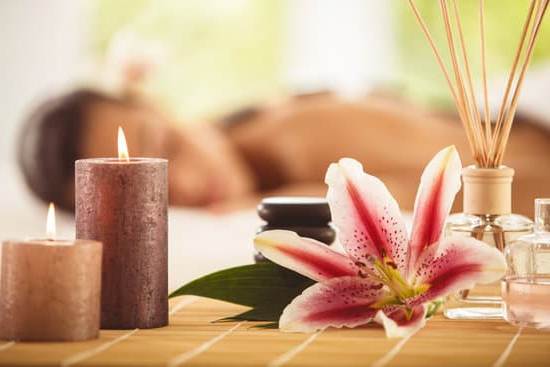Aromatherapy oils have been utilized for centuries to promote overall well-being and enhance quality of life. These essential oils, extracted from plants and flowers, are known for their therapeutic properties that can positively impact mental, emotional, and physical health. In this article, we will delve into what aromatherapy oils do and how they can be incorporated into daily wellness routines.
The history of aromatherapy dates back to ancient civilizations where plant extracts were used for medicinal purposes and spiritual rituals. Over time, the practice has evolved into a holistic approach to healing that focuses on harnessing the natural benefits of these aromatic oils. Understanding the science behind aromatherapy oils is crucial in order to fully comprehend how they interact with our bodies and minds to produce positive effects.
From reducing stress and anxiety to boosting energy levels and improving sleep quality, aromatherapy oils offer a wide range of benefits for individuals seeking natural remedies for various ailments. By exploring popular essential oils such as lavender, peppermint, eucalyptus, and more, we can uncover the specific uses and advantages each oil provides. Stay tuned as we discuss how to incorporate these oils into everyday life through diffusers, inhalation techniques, and topical applications.
History of Aromatherapy
Aromatherapy has a rich history that dates back thousands of years, with origins in ancient civilizations such as China, Egypt, and India. These ancient cultures recognized the powerful healing properties of plant extracts and used them for various purposes, including medicinal, spiritual, and cosmetic. The use of aromatic oils for health and well-being has evolved over time, eventually leading to the modern practice of aromatherapy we know today.
One of the earliest recorded uses of aromatherapy can be traced back to ancient Egypt, where aromatic oils were used in religious ceremonies, embalming practices, and for their therapeutic benefits. The Egyptians were known to have created complex recipes using plant-based oils and resins, harnessing their fragrant essences for both physical and emotional healing. Similarly, in ancient China, herbal medicine practitioners used aromatic herbs and oils to promote balance within the body’s energy systems, known as Qi.
The concept of aromatherapy continued to evolve throughout history, with notable contributions from renowned figures such as Hippocrates and Avicenna. Hippocrates, often referred to as the “Father of Medicine,” believed in the power of aromatic baths and scented massage oils to promote health and wellness.
Avicenna, a Persian polymath, documented hundreds of botanical remedies in his medical texts that highlighted the therapeutic properties of plants and their essential oils. These early pioneers laid the foundation for what aromatherapy oils do today: support holistic healing on a physical, mental, and emotional level.
| Historical Figure | Contribution |
|---|---|
| Hippocrates | Advocated for aromatic baths and massage oils for health |
| Avicenna | Documented botanical remedies highlighting therapeutic properties |
Understanding the Science Behind Aromatherapy Oils
Aromatherapy oils have been used for centuries to promote physical, mental, and emotional well-being. But how exactly do these oils work their magic? The science behind aromatherapy oils lies in their ability to interact with the body through various pathways, ultimately affecting our mood, emotions, and overall health.
The Olfactory System
One of the key ways in which aromatherapy oils work is through the olfactory system. When we inhale the aroma of essential oils, odor molecules travel through the nasal passage and stimulate the olfactory receptors. These receptors then send signals to the brain’s limbic system, which is responsible for controlling emotions, memories, and behavior. This direct connection between scent and brain function explains why certain aromas can evoke specific feelings or trigger memories.
Chemical Composition
Another factor that influences how aromatherapy oils work is their chemical composition. Each essential oil contains a unique combination of compounds that contribute to its therapeutic properties. For example, lavender oil contains linalool and linalyl acetate, which are known for their calming and soothing effects. Peppermint oil, on the other hand, contains menthol that can help alleviate headaches and improve focus. Understanding the chemical makeup of different oils can help you choose the right ones for your specific needs.
Absorption Into the Body
In addition to inhalation, aromatherapy oils can also be absorbed into the body through topical application. When applied to the skin, essential oils penetrate through the pores and enter the bloodstream. From there, they can travel to different organs and systems in the body, exerting their benefits at a cellular level.
This method of absorption allows for targeted therapy and localized relief for various health concerns. Overall, by understanding how aromatherapy oils interact with our bodies on a molecular level, we can harness their power to enhance our well-being in a holistic way.
Benefits of Aromatherapy Oils
Aromatherapy oils are not only known for their pleasant scents but also for their wide range of benefits that can positively impact mental, emotional, and physical well-being. These natural oils derived from various plants have been used for centuries to promote healing and relaxation.
One of the key benefits of aromatherapy oils is their ability to help reduce stress and anxiety levels. Scents like lavender, chamomile, and bergamot are known for their calming properties that can help soothe the mind and improve overall mood.
In addition to aiding in stress relief, aromatherapy oils can also have a positive impact on emotional health. Certain essential oils like rose, ylang-ylang, and jasmine are believed to have mood-boosting properties that can help alleviate symptoms of depression and uplift the spirit. The inhalation of these fragrant oils through methods like diffusion or topical application can stimulate the release of neurotransmitters like serotonin and dopamine, which play a role in regulating emotions.
Furthermore, aromatherapy oils have been found to offer various physical health benefits as well. Many essential oils possess antimicrobial properties that can help fight off harmful bacteria and viruses when used in a diffuser or as part of a cleaning solution. Oils like tea tree, eucalyptus, and peppermint are popular choices for their immune-boosting effects.
Additionally, certain aromatherapy oils have analgesic properties that can help alleviate pain when applied topically in a diluted form. From promoting relaxation to boosting immunity, the benefits of aromatherapy oils extend beyond just their pleasant aroma.
Popular Aromatherapy Oils and Their Uses
Aromatherapy oils have gained popularity for their various uses and benefits in promoting overall well-being. Among the most popular aromatherapy oils are Lavender, Peppermint, Eucalyptus, and many more. Each of these oils has unique properties that cater to different needs and preferences, making them versatile options for aromatherapy enthusiasts.
Lavender essential oil is well-known for its calming and relaxing effects on the mind and body. It is often used to alleviate stress, anxiety, and promote better sleep quality. Peppermint essential oil, on the other hand, is commonly used for its invigorating and energizing properties. It can help boost focus, improve mental clarity, and soothe headaches or muscle aches.
Eucalyptus essential oil is recognized for its respiratory benefits. It is frequently used to clear congestion, relieve sinus issues, and support respiratory health. Additionally, Eucalyptus oil can act as a natural insect repellent due to its strong scent. These popular aromatherapy oils are just a few examples of the diverse range of options available for enhancing mental, emotional, and physical well-being through aromatherapy practices.
| Aromatherapy Oil | Main Uses |
|---|---|
| Lavender | Calming effects, stress relief, better sleep quality |
| Peppermint | Invigorating properties, boost focus, soothe headaches or muscle aches |
| Eucalyptus | Respiratory benefits, congestion relief, insect repellent |
How to Use Aromatherapy Oils
Aromatherapy oils can be utilized in various ways to reap their benefits for mental, emotional, and physical well-being. Understanding how to use these oils effectively is essential for maximizing their therapeutic effects. Here are some common methods of using aromatherapy oils:
- Diffusers: One popular way to enjoy the benefits of aromatherapy oils is by using diffusers. These devices disperse the essential oil molecules into the air, allowing you to inhale them and experience their effects. There are different types of diffusers such as ultrasonic diffusers, nebulizing diffusers, and heat diffusers.
- Inhalation: Another method of using aromatherapy oils is through inhalation. You can add a few drops of essential oil to a bowl of hot water and inhale the steam or simply sniff the oil directly from the bottle for quick relief. This method is great for targeting respiratory issues or providing instant relaxation.
- Topical Application: Aromatherapy oils can also be applied topically to the skin, either through massage or diluted in carrier oils like coconut or jojoba oil. This allows the oils to be absorbed into the bloodstream, providing localized or systemic relief depending on your needs.
In addition to these methods, incorporating aromatherapy oils into your daily routine can enhance your overall well-being. It’s important to choose high-quality oils and follow recommended guidelines for dilution ratios and usage. Experimenting with different blends and applications can help you discover what aromatherapy oils do best for you personally.
Remember that everyone reacts differently to essential oils, so it’s essential to pay attention to how your body responds and adjust accordingly. With proper knowledge and care, you can experience the full potential of aromatherapy oils in promoting a healthier mind and body.
Safety Precautions When Using Aromatherapy Oils
Aromatherapy oils have gained popularity for their numerous benefits in promoting mental, emotional, and physical well-being. However, it is essential to take certain safety precautions when using these potent essential oils to avoid any adverse effects. Dos and Don’ts are crucial guidelines that every user should be aware of to ensure a safe and enjoyable experience with aromatherapy oils.
One important safety precaution when using aromatherapy oils is to always dilute them properly before applying them to the skin. Essential oils are highly concentrated substances that can cause skin irritation or sensitization if used undiluted.
It is recommended to mix them with a carrier oil such as jojoba, coconut, or almond oil before applying them topically to prevent any adverse reactions. Performing a patch test on a small area of the skin before widespread application is also advisable to check for any allergic reactions.
Another vital safety tip is to never ingest essential oils unless under the guidance of a qualified healthcare provider. Ingesting concentrated aromatherapy oils can be harmful and toxic, leading to serious health issues. Essential oils are meant for external use only, either through inhalation or topical application. Always keep them out of reach of children and pets, and store them in a cool, dark place away from direct sunlight to maintain their potency and safety for use.
When using aromatherapy oils in a diffuser for inhalation purposes, it is crucial to follow the manufacturer’s instructions carefully. Avoid overexposure by limiting the duration of diffusion and ensuring proper ventilation in the room.
Some essential oils can be too stimulating or irritating if diffused excessively, so it’s best to use them in moderation and listen to your body’s response. By following these dos and don’ts when using aromatherapy oils, you can enjoy their therapeutic benefits safely and effectively for overall well-being.
Choosing the Right Aromatherapy Oils for Your Needs
Aromatherapy oils are a versatile and effective way to enhance overall well-being and quality of life. With a wide range of essential oils available, it can be overwhelming to choose the right ones for your specific needs.
Whether you are looking to address physical ailments, mental clarity, or emotional balance, selecting the appropriate aromatherapy oils is crucial in achieving desired results. Here are some tips on how to personalize your aromatherapy blends and recommendations based on your individual preferences and requirements.
- Identify Your Needs: Before choosing which aromatherapy oils to incorporate into your routine, it is essential to identify what you hope to achieve through aromatherapy. Are you looking to reduce stress and anxiety, alleviate headaches, or boost energy levels? By pinpointing your specific needs, you can select the most suitable essential oils that target those concerns directly.
- Research Different Oils: Each essential oil has unique properties and benefits, making some more suitable for certain conditions than others. Research different aromatherapy oils such as lavender, peppermint, eucalyptus, chamomile, and rosemary to understand their uses and effects. Experimenting with various oils can help you discover which ones work best for you.
- Create Personalized Blends: One of the advantages of aromatherapy is the ability to create personalized blends tailored to your preferences. Combining multiple essential oils can enhance their therapeutic effects and create a harmonious aroma that resonates with you. Consider blending calming scents like lavender with invigorating oils like citrus for a balanced blend that promotes relaxation and mental clarity.
Choosing the right aromatherapy oils for your needs involves understanding your goals, researching different essential oils, and experimenting with personalized blends until you find what works best for you. By incorporating aromatherapy into your daily routine with carefully selected essential oils, you can experience the full benefits of this ancient practice in promoting holistic wellness. Take the time to explore the world of aromatherapy oils and discover how they can positively impact your physical, mental, and emotional well-being.
Conclusion
In conclusion, the use of aromatherapy oils can truly have a significant impact on one’s overall well-being and quality of life. From their origins in ancient civilizations to their modern-day application in holistic wellness practices, aromatherapy oils have proven to be a powerful tool for promoting mental, emotional, and physical health. Understanding the science behind how these oils work, whether through inhalation or topical application, helps us appreciate the therapeutic benefits they offer.
The diverse range of popular aromatherapy oils like lavender, peppermint, and eucalyptus each bring their unique set of properties and uses to the table. Whether it’s to unwind after a long day, boost concentration and focus, or alleviate symptoms of common ailments like headaches or congestion, there is an essential oil for almost every need.
By incorporating these oils into our daily routines through diffusers, baths, massages, or simply inhaling their scents directly from the bottle, we can harness their natural abilities to improve our well-being.
As with any wellness practice, it is essential to prioritize safety when using aromatherapy oils. Following dosage guidelines, understanding potential interactions with medications, and being aware of any allergies are crucial steps in ensuring a positive experience. With personalized blends tailored to individual needs and preferences, anyone can benefit from the transformative power of aromatherapy oils in enhancing not just their physical health but also their emotional balance and overall quality of life.
Frequently Asked Questions
What Are the Benefits of Aromatherapy Oils?
Aromatherapy oils offer a wide range of benefits, including relaxation, stress relief, improved mood, and even potential health benefits such as reducing inflammation or boosting immunity. These essential oils can also be used for skin care, promoting better sleep, and enhancing overall well-being.
What Do You Use Aromatherapy Oils For?
Aromatherapy oils are commonly used for various purposes such as diffusing them for aromatherapy sessions to promote relaxation and mental clarity. They can be applied topically when diluted with a carrier oil for skincare or massage therapy. Some individuals also use these oils in baths or inhalation techniques to reap their therapeutic benefits.
How Does Aromatherapy With Oils Work?
Aromatherapy with oils works by stimulating the olfactory system in our brains when we inhale their aromatic molecules. These molecules then travel through the nasal cavity to the limbic system, which is responsible for emotions and memories. The specific scent of each oil triggers different responses in the brain, leading to various effects like relaxation, increased focus, or mood enhancement.

Are you looking for a natural way to improve your health and wellbeing?
If so, aromatherapy may be the answer for you.





